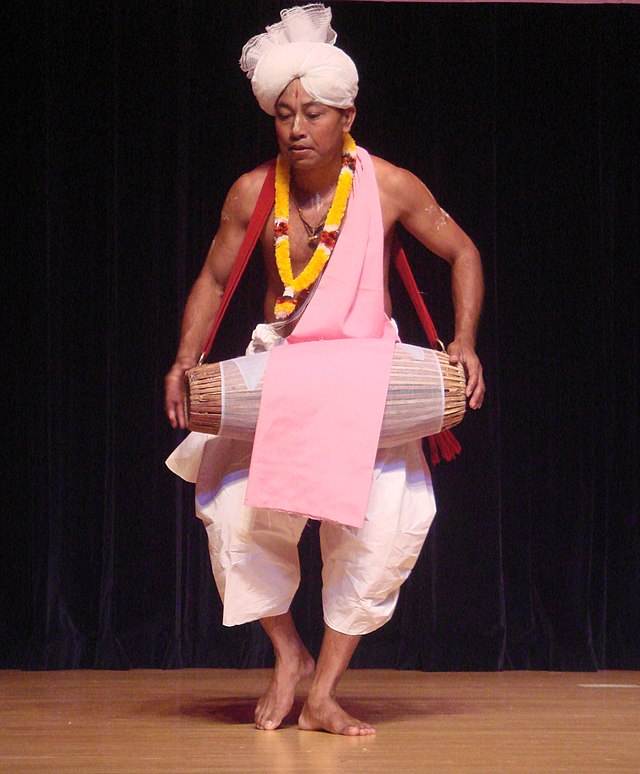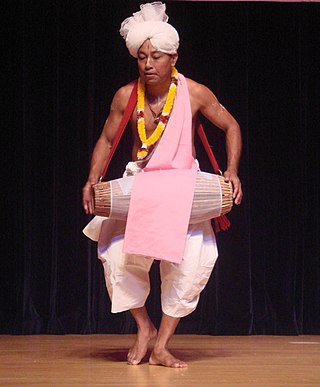Top Qs
Timeline
Chat
Perspective
Pung Cholom
A classical dance form of Meitei culture From Wikipedia, the free encyclopedia
Remove ads
The Pung cholom (Meitei: ꯄꯨꯡ ꯆꯣꯂꯣꯝ, lit. 'roar of the drum') is a traditional Meitei dance form originated from Manipur, which is the soul of the Manipuri Sankirtana music and the Manipuri classical dance.[1][2][3] The Pung cholom is a unique classical dance of Manipur. This dance may be performed by men or women and is usually a prelude to the Ras Lila.[1][2][3] In this style, the dancers play the pung (a form of hand beaten drum) while they dance at the same time. Dancers need to be graceful and acrobatic at the same time. They use these acrobatic effects without breaking the rhythm or flow of music.[1][2][3] The dance is marked by a gentle rhythm, which gradually builds up to a thunderous climax. Pung cholom borrows elements from the Manipuri martial arts, Thang Ta and Sarit Sarak and also from the traditional Maibi Jagoi.[1][2][3]


Remove ads
Function of eyes
In Pung Cholom, eyes play a crucial role since every actions are done through vision. There are three different ways of directing the gaze: close (Meitei: ꯑꯅꯛꯄ), or to about 2.6m from the performer, middle (Meitei: ꯃꯌꯥꯏ), about 4.3m, and distant (Meitei: ꯑꯔꯥꯞꯄ), about 6m.[citation needed]
See also
- Pungmul – South Korea and North Korea
- Gayan-bayan – Assam
- Khanjluri, Kazbeguri, Khevsuruli and Mtiuluri – Georgia
- Jangi – Azerbaijan
- Yarkhushta – Armenia
- Qilaut – Canada (Nunavut, Northwest Territories and Yukon), United States (Alaska), Denmark (Denmark) and Russia (Chukotka Autonomous Okrug)
- Ritual dance of the royal drum – Burundi
References
Wikiwand - on
Seamless Wikipedia browsing. On steroids.
Remove ads
